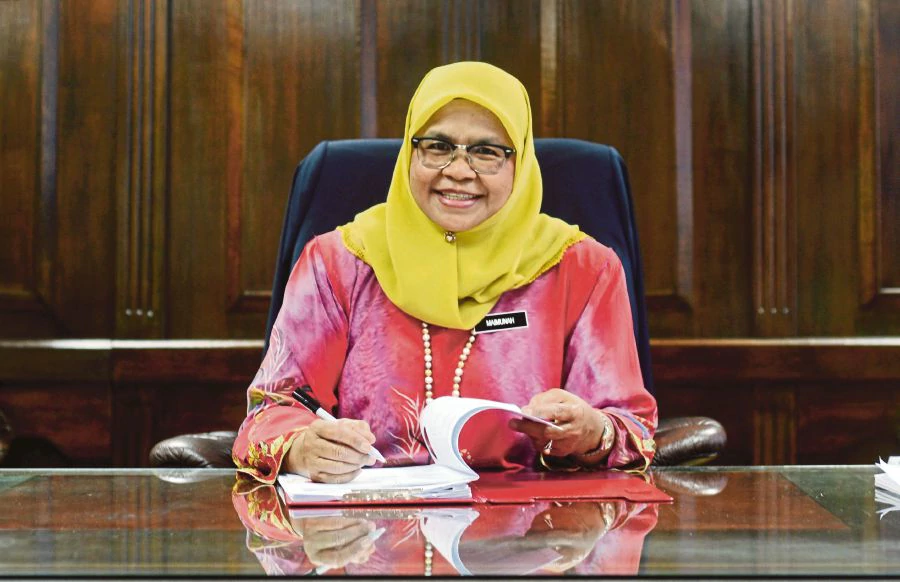ONE New Year gift that must surely cheer up all Malaysians is the appointment of Penang Mayor Datuk Maimunah Mohd Sharif as executive director of the United Nations Human Settlements programme (UN-Habitat).
Maimunah makes history by becoming the first Asian to hold this prestigious job, and her appointment helps meet one of UN secretary-general Antonio Guterres’ promises to see women in more of UN’s senior most positions.
UN-Habitat is considered one of the most active agencies of the international body. Maimunah will oversee 400 core staff, up to 2,000 project-based employees, four regional offices and activities in more than 70 countries.
A key focus of the agency will be UN’s New Urban Agenda, a 20-year vision for sustainable cities adopted at the 2016 Habitat III conference in Ecuador.
UN-Habitat predicts the number of people living in cities will almost double to seven billion in 2050 from 3.7 billion today, with many mired in squalor if urbanisation is poorly managed.
Encouraging and overseeing adoption of UN’s sustainable urban living goals worldwide is an awesome challenge, to say the least, especially so given recent declines in funding for the 40-year old agency.
Malaysian women have proven themselves up to such international challenges many times, however. In fact, holding key UN positions is part of a tradition of public service par excellence rendered by our female compatriots.
Maimunah follows in the path of Tan Sri Rafiah Salim, who served as assistant secretary-general for human resource management at UN headquarters in New York from 1997 to 2002. Rafiah was instrumental in the reform agenda at UN laid out by then secretary-general Kofi Annan in five core missions: peace and security, economic and social affairs, development cooperation, humanitarian affairs, and human rights.
As head of human resources, Rafiah’s mandate was to improve the efficiency of the UN machinery, which included heading a task force of experts from different world regions sharing diverse human resource management experience from the public and private sectors.
Similarly, Malaysian astrophysicist Datuk Dr Mazlan Othman was also appointed by Annan in 1999 to serve as director of the UN Office for Outer Space Affairs (UNOOSA) in Vienna. At our government’s request, she returned to Malaysia in July 2002 to serve as the founding director-general of the Malaysian National Space Agency (Angkasa), where her work led to the launch of
the first Malaysian angkasawan (astronaut), Datuk Dr Sheikh Muszaphar Shukor.
After five years, Mazlan returned to Vienna to reassume the directorship of UNOOSA, appointed to a second term by then secretary-general Ban Ki-moon. In that reprised role, she addressed such daunting issues as international cooperation in space, prevention of space debris and collisions, use of space-based remote sensing platforms for sustainable development, coordination of space law and the risks posed by near-earth asteroids.
A third highly notable example of Malaysian women in leadership roles at the world body is Tan Sri Dr Jemilah Mahmood, who, since January last year, has served as under-secretary general for partnerships at the International Federation of Red Cross and Red Crescent Societies (IFRC). Before joining IFRC, she served at UN in New York as chief of the World Humanitarian Summit and of the UN Population Fund’s Humanitarian Response Branch.
Before her UN career, Jemilah in 1999 founded Mercy Malaysia (Malaysian Medical Relief Society), a medical charity inspired by Médecins Sans Frontières (Doctors Without Borders). In 2008, she was one of 16 members appointed by then UN secretary-general Ban Ki-moon to the Advisory Group of the Central Emergency Response Fund.
It is a source of great pride to Malaysians to see the contribution to world affairs of our women leaders. Having my own window on the UN, I can testify that these top posts are hotly contested and strictly awarded on merit; government lobbying can only do so much. When a UN secretary-general signs an appointment, you can be sure the nomination passed a rigorous search process in which a committee vetted and pared a long list of candidates down to a very few final choices.
Why do Malaysian women excel at such stratospheric levels? I can venture a few reasons: First, a solid education from an early age available in our country and the high female enrolment rate in our universities. Second, a robust public service working environment. After all, these high-flyers were plucked from the prime of their public careers back home.
Some 35 per cent of top management posts in our public sector are filled by women, as noted recently by Prime Minister Datuk Seri Najib Razak, who wants
even further improvement in keeping with Malaysia’s strong track record in women’s rights.
It won’t be a surprise, therefore, that in the not-too-distant future, we will have a woman chief secretary to the government — perhaps even a secretary-general of the United Nations.
The writer is science adviser to the prime minister and former official of the United Nations University News Straits Times.
Retrieved from https://www.nst.com.my/opinion/columnists/2017/12/319695/united-nations-and-malaysian-womens-power

